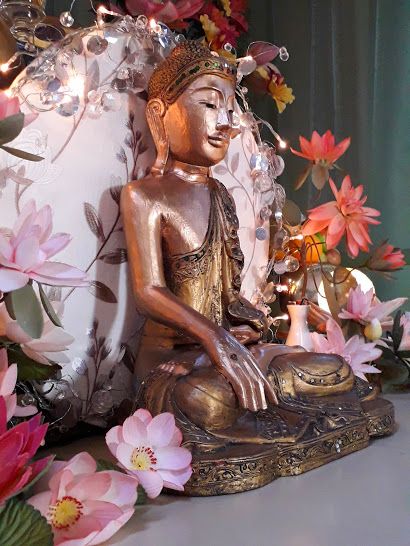Up to now I’ve tended not to write a lot about the more devotional aspect of Buddhism, however here I go! The custom within our religious Order is to celebrate, in the form of a ceremony, a number of Bodhisattvas. Today is the turn of Bhaisajya-guru Tathagata, commonly referred to as the Medicine Buddha.
This is in honour of Bhaisajyaguru, the Buddha of Healing
who sits radiantly in the pure land of this moment.
Whenever we give ourselves in trust
to the mind of meditation we call upon Him
and receive the medicine that ends all suffering.
This medicine He offers is the acceptance
of all causes and conditions
that make our lives what they are.Such acceptance releases us from grasping
and brings serenity in the face of death.
His teaching removes frustration,
despair and the need for
dreams and unreal hopes.
All activity and purpose is within
the stillness of His heart.
His vows to heal all beings is His true body
and it appears whenever we respond
with compassion to the needs that surround us.When we give ourselves in trust
our lives are fulfilled.
We cannot judge the worth of our offering,
it is enough that it is made with a pure heart.
For those who give themselves, all questions vanish
and there is nothing to ask for that is not already given.
The body of the Buddha is constantly emerging
and yet it is never moving.
We bow in gratitude for the great compassion of all the Buddhas and for their limitless teaching.
See also this post, The Healing Buddha

